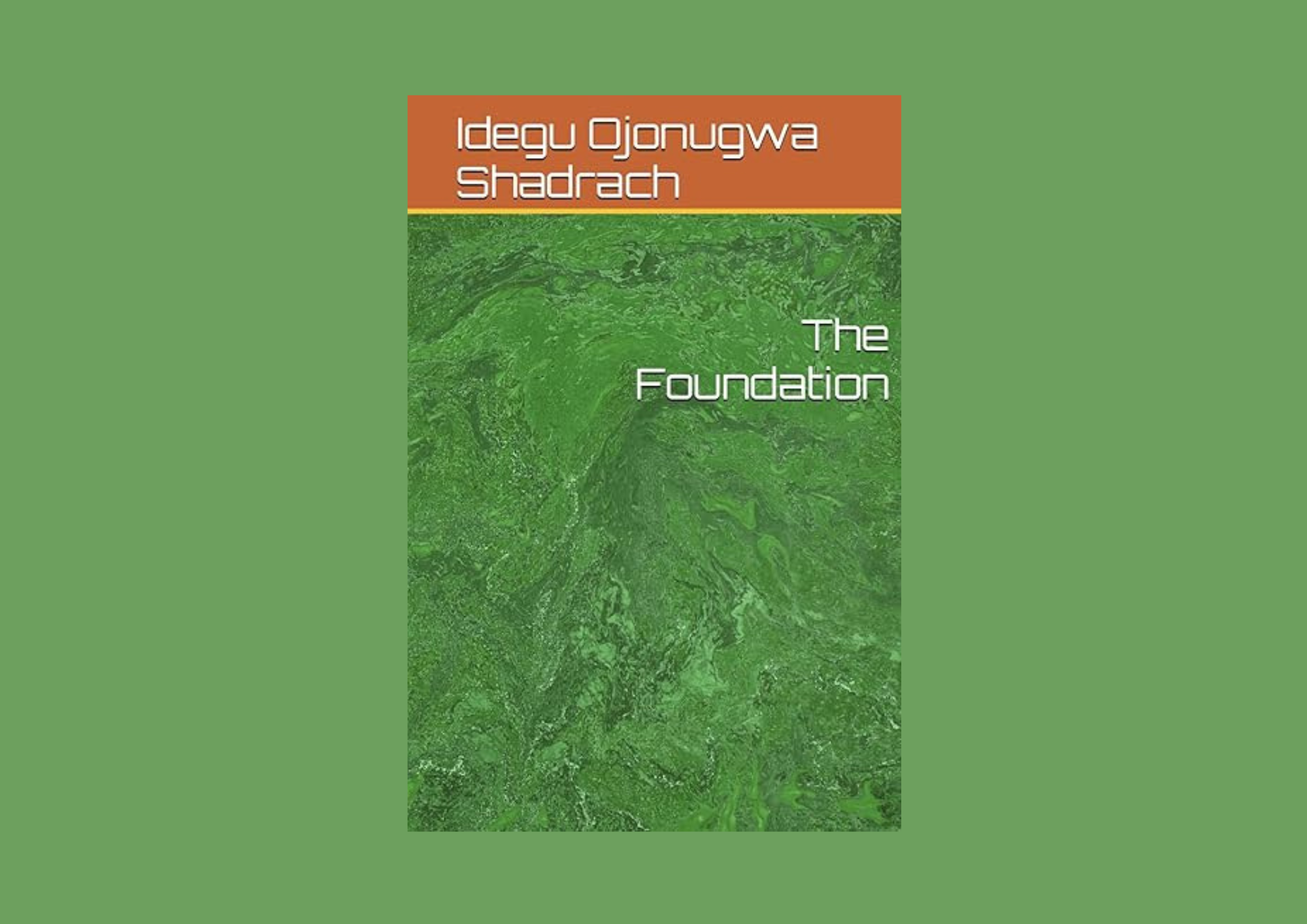Idegu Ojonugwa Shadrach’s The Foundation is not your typical poetry book. It doesn’t come to entertain or decorate a shelf. It arrives with urgency, with purpose, and with a voice that feels as ancient as it is current. This is poetry written with the weight of something important to say.
From the first page to the last, it calls its reader to pause, reflect, and most of all—wake up.
Split into six long stanzas, The Foundation reads more like a manifesto than a poem. It carries the rhythm of thought, the tone of truth, and the fire of someone tired of watching the world pretend everything is okay. Through the voice of a Nigerian graduate named Judge, who moves abroad in search of better opportunities, the first stanza immediately questions how we view culture, race, and the blame we cast on others for our own societal failures. Judge’s observations are not romanticized. They are direct, often uncomfortable, and refreshingly honest. It becomes clear that the story isn’t just about one man; it’s about all of us who have lived in systems that fail and wonder what part we play in changing them.
As the poem continues, it moves into the dark corners of politics, where power and corruption dance too closely. Idegu writes with the sharpness of someone who has seen too much and cannot stay silent. He captures the frustration of everyday citizens as they watch leaders ignore their pain. He tells the story of a government project gone wrong, a human rights activist arrested for speaking out, and the crushing weight of justice denied. Yet even in this heaviness, there’s hope—hope that the people can still rise, still protest, still push for something better.
Then, in a surprising turn, the poem shifts to matters of faith. Not religion in the usual sense, but a deep questioning of how humans relate to God, to nature, and to themselves. Idegu doesn’t preach. Instead, he reflects. He wonders why people expect God to fix what they break, and why they run back only when it hurts. These parts of the poem are calm but cutting, the kind of writing that leaves you quiet afterward, sitting with a new understanding.
Later stanzas turn inward, looking at love and loyalty, at how trust can be built or broken in silence. One stanza speaks directly to young people, warning against testing love with games, and reminding readers that not everything needs to be proven; well, some things, like trust, should simply be given or walked away from. It’s rare to see such emotional maturity in poetry that’s also so culturally rooted.
But perhaps the most powerful part of the poem is where it returns home. In its final stretch, The Foundation delves into the traditions and spiritual practices of the Igala people. Here, Idegu paints a world of ancestral laws, respect, rituals, and moral codes that are not just old but alive. He doesn’t describe culture as a memory. He describes it as a force. You feel the pride in every line. You feel the protection these beliefs offer and the warning they carry for those who forget them.
What makes The Foundation stand out is its honesty. Idegu doesn’t try to sound clever. He doesn’t try to impress. He simply tells the truth the way he sees it. His style is clear and serious, sometimes more like a conversation or a speech than what we expect from poetry. Some parts are heavy with thought, and some lines could have been trimmed. But none of that takes away from the power of what he’s trying to do.
This is a book that poses questions that many people tend to avoid. “Why do we blame others but not ourselves?” “Why do our leaders forget their promises?” “Why do we treat culture as old-fashioned when it holds the answers we need?” And perhaps the biggest question: “What are we doing to rebuild what we’ve broken?”
The Foundation is not a gentle read. It won’t comfort you. It will confront you. But in doing so, it might remind you of your own strength, your roots, and your responsibility.
For anyone searching for literature that goes beyond beauty and into purpose, this book is a gift. It belongs in schools, in living rooms, in community halls, in places where people are ready to grow. It is a foundation worth building on.
To get the book, kindly click here.



